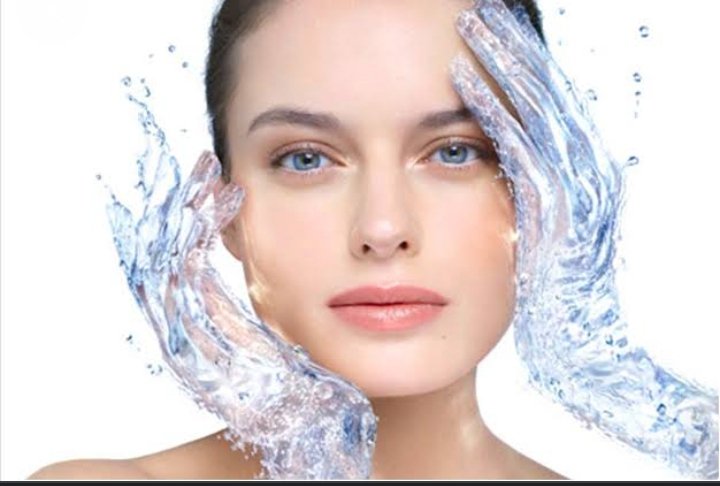Does your skin appear dull and feel dry or tight? It might be a sign of dehydration.
Your body depends on water to survive. Every cell, tissue, and organ in your body needs water to work properly. For example, your body uses water to maintain its temperature, remove waste, and lubricate your joints. Water is needed for overall good health.
While slathering on cream, serums, and other skincare products are important to maintain your skin’s health and keep it glowing, hydrating your skin from the inside out is key to keep it nourished.
In this article, we tell you how to hydrate your skin and its benefits. Read on!
What Is A Hydrated Skin?

It’s natural to think of water when you hear the word ‘hydration’. Rightly so, hydrating your skin means increasing its water content. If your skin is dehydrated, it can appear flaky, dull and dry.
Hydrated skin is smooth, radiant and has an even tone. To achieve this, you need to quench your skin’s thirst from time to time.
However, people often tend to confuse dehydrated skin with dry skin. Although used synonymously, there is an underlying difference between the two.
How To Hydrate Your Skin:
1. Drink An Adequate Amount Of Water.
The first step to hydrating your skin is hydrating your body. It is recommended for you to drink at least 8 glasses of water every day.
Most people have been told they should drink 6 to 8, 8-ounce glasses of water each day. That’s a reasonable goal. However, different people need different amounts of water to stay hydrated. Most healthy people can stay well hydrated by drinking water and other fluids whenever they feel thirsty. For some people, fewer than 8 glasses may be enough. Other people may need more than 8 glasses each day.
Other options.
While plain water is best for staying hydrated, other drinks and foods can help, too. Fruit and vegetable juices, milk, and herbal teas add to the amount of water you get each day. Even caffeinated drinks (for example, coffee, tea, and soda) can contribute to your daily water intake. A moderate amount of caffeine (400 milligrams) isn’t harmful for most people. Here are the caffeine amounts found in popular drinks:
- 12 ounces of soda: 30 to 40 milligrams
- 8 ounces of green or black tea: 30 to 50 milligrams
- 8 ounces black coffee: 80 to 100 milligrams
- 8-ounce energy drink: 40 to 250 milligrams.
2. Use Hydrating Skincare Products.
Water-based creams are recommended if you have dehydrated skin. Products that penetrate through your skin and deliver water are vital if you have dehydrated skin.
According to Dr. Harish, “Products containing hydrating agents like glycerin, hyaluronic acid, urea and ammonium lactate can preserve skin hydration.”
Look for the following hydrating ingredients:
A. Hyaluronic Acid
Plays an important role in hydrating your skin and maintaining its elasticity. Hyaluronic acid’s water-binding properties help replenish your skin and also prevents early signs of ageing.
B. Glycerin
A popular ingredient of the beauty industry, glycerin has hydrating properties that can relieve your skin from feeling dry and itchy. This is because glycerin is a humectant. So it works by attracting moisture from the environment onto the surface of your skin.
C. Urea
Another widely used ingredient in the dermatological world, urea loosens and breaks down hardened protein, relieving your skin of roughness and itchiness.
D. Ceramides
These are skin replenishing ingredients, like the cement that supports the bricks of a building. They make up and repair your skin’s barrier, which prevents water loss and retains moisture.
E. Panthenol
Panthenol is an ingredient that penetrates through the skin and imparts moisture to the cells. It also prevents trans-epidermal water loss. This means that it improves skin barrier functions by stimulating cells that boost the same.
3. Avoid Very Hot And Long Showers.
As contradictory as it may sound, bathing for long hours can eradicate your skin’s barrier. This may result in loss of moisture content and necessary oils which can dehydrate your skin. Using lukewarm water while bathing is ideal.
4. Pamper Yourself With Face Masks/Sheets.
Face masks are packed with hydrating ingredients. Incorporating a hydrating face mask into your daily skincare regimen will keep your skin plump and moist. It can also reduce the appearance of fine lines and dark circles.
5. Use A Humidifier.
A humidifier can be used when the moisture content in the air around you is low. This can be especially helpful during dry winter months.
6. A Sunscreen Is A Must.
Apply a broad spectrum sunscreen to prevent UVA and UVB skin damage every time you step out in the day. Sun exposure can dehydrate
skin, causing it to lose moisture and break down its collagen and elastin, which are responsible for its strength and elasticity. This can cause premature signs of aging.
7. Ear Fruits Rich In Water.
Tomato is the most famous fruit masquerading as a veggie, tomato is chock full of water and nutrients. Much like watermelon, you’ll get Vitamin A, Vitamin C, and lycopene. Additionally, tomatoes contain Vitamin K and Vitamin B for even greater overall health benefits. And of course, tomatoes are immensely flexible in the kitchen. Add them to sauces, salads, sandwiches, or anything else! Heck, you can even eat particularly tasty ones like you would an apple.
Fruits and vegetables are not only hydrating but are beneficial for your skin in many other ways. Citrus-based fruits like oranges and lemons are packed with juice and are rich in Vitamin C, which is vital to maintain your skin’s texture. Foods rich in Vitamin A and B3 are also essential to improve your overall skin health.
8. Reduce Intake Of Caffeine.
Both caffeine and alcohol can reduce the water content of your skin, this causing tightness and dehydration. Limit your caffeine and alcohol intake to two cups of coffee and one glass of wine to minimize their impact on your skin.
9. Exfoliolate Regularly.
Exfoliating your skin is important to get your skin rid of dry patches, dead cells, etc. accumulated due to the lack of moisture. Make sure to exfoliate once in 4-5 days. However, remember not to over exfoliate as too much exfoliation may disrupt the natural skin barrier, leading to moisture loss.
10. Moisturize.
During summers, your body tends to lose a lot of moisture, which is why hydrating yourself from the inside out is important. Besides, eating water-rich foods and drinking adequate water, make sure to cleanse, tone, and moisturize religiously at night before sleeping. Honey and milk are great natural moisturizers, hence you can add them in your skincare routine.
In Conclusion,
These quick tips are the long and short of keeping your skin hydrated.
- Get 8 to 9 hours sleep.
- Limit showers to 5 to 10 minutes, and use lukewarm water.
- Drink enough water.
- Limit coffee and alcohol.
- Limit or avoid smoking.
- Switch to a gentle cleanser.
- Eat a varied diet that’s rich in essential fatty acids.
- Use a hydrating sleep mask.
- Protect your skin from the sun, wind, and cold.
- Create a moisture barrier with petroleum jelly.
- Try to reduce your stress levels.



